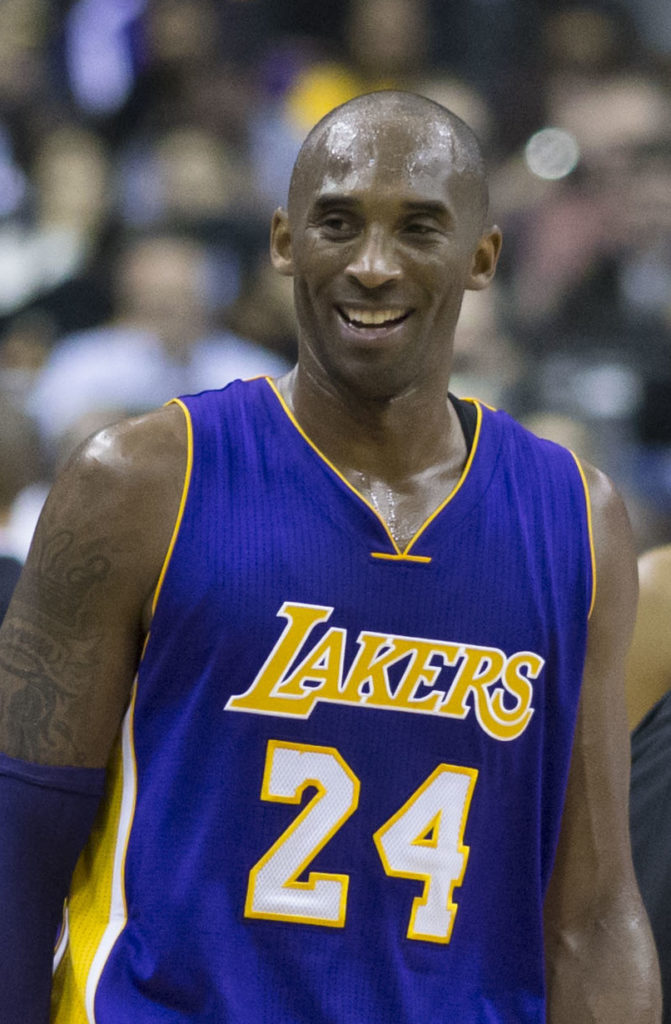Author’s Note:
I would like to address the elephant in the room: Kobe Bryant’s alleged sexual misconduct (rape case). “Alleged” because it was never proven in court. With the absence of a court ruling and even with it, I refuse to pass judgment on Kobe’s guilt or innocence.
Having said that, I would like to add that this piece is not meant to serve as a hagiography of Kobe. It merely wants to acknowledge his positive qualities – qualities that are publicly recognized and whose fruits are made evident by his athletic achievements – that are useful for the practice.
This piece is also written guided by the following notions: that people are not defined by their past actions, whether wholesome or unwholesome, that people can change, and that all of us, despite our imperfections, have something beneficial to share.

Yesterday, I woke up to the news that NBA legend Kobe Bryant has passed away, killed in a helicopter crash in Los Angeles. As a basketball fan and a human being, I am deeply saddened by this news.
Learning that his daughter Gianna was also killed in the accident – they were on the way to Gianna’s basketball game – makes the tragic news even more heartbreaking.
There were other passengers in the helicopter. No one survived the crash. I would like to send thoughts of goodwill to the families and friends the victims left behind.
As a Buddhist practitioner, Kobe’s death serves as a reminder of one of life’s greatest truths: the shortness and inconstancy of human existence. This is true for everyone, even for rich and famous athletes like Kobe.
As one journalist puts it, “Superstars aren’t supposed to die. But of course they do.” Kobe’s death also offered an opportunity for us to reflect on death and how prepared we are in facing the inevitable end of our lives.
I wasn’t a Kobe fan during his early years in the NBA. But as he collected one achievement after another throughout his illustrious career, it became impossible not to appreciate his greatness.
Kobe is a very competitive player. He always brought to every game he played in what came to be known as the “mamba mentality.” Named after a large, highly venomous snake from Africa, it entails having the mindset of not backing down from any opponent and not quitting until the fight is over.
“If you see me in a fight with a bear, pray for the bear,” Kobe once said. He is also known for his remarkable work ethic. His off-season training routine is dubbed as the 666 workout because it involves training for 6 hours a day, 6 days a week for 6 months.
Kobe is Catholic but with the guidance of his long-time coach and Zen practitioner Phil Jackson, he learned how to meditate. Over time, he developed a daily meditation practice and he usually starts his day by sitting for 10 to 15 minutes. “I think it’s important because it sets me up for the rest of the day. It helps me. It’s like having an anchor,” he said.
A friend said that the best way to honor Kobe’s memory is to do our absolute best in whatever we do. So it got me thinking, can I apply the mamba mentality in my practice?
After all, there are many instances in the Canon where the Buddha displayed what can be considered as a mamba mentality. Of fear and terror, the Buddha said the following in the Bhaya-bherava Sutta:
So when fear & terror came while I was walking back & forth, I would not stand or sit or lie down. I would keep walking back & forth until I had subdued that fear & terror. When fear & terror came while I was standing, I would not walk or sit or lie down. I would keep standing until I had subdued that fear & terror. When fear & terror came while I was sitting, I would not lie down or stand up or walk. I would keep sitting until I had subdued that fear & terror. When fear & terror came while I was lying down, I would not sit up or stand or walk. I would keep lying down until I had subdued that fear & terror.
I don’t think I can commit to sitting for 6 hours a day, 6 days a week for 6 months, at least not now or anytime soon. But one of the qualities I can borrow from Kobe’s mamba mentality is having conviction, the unshakeable sense of certainty that effort and persistence bear great fruits.
Having conviction is important in the practice. Thanissaro Bhikkhu advises us to “Make an effort. Don’t give up…You always have to try to energize the mind so that it’ll keep making progress…” We must keep having conviction until we develop acala-saddhā or unwavering conviction. It is a type of conviction that is firm and does not deteriorate.
Like Kobe who didn’t stop until his final goal (victory) is achieved, let us continue to train ourselves to become better and better until the final goal of the practice is achieved.
Of a disciple of the noble ones who has conviction,
it can indeed be expected that he will keep his persistence aroused for
abandoning unskillful mental qualities and
taking on skillful mental qualities,
that he will be steadfast, solid in his effort,
not shirking his duties with regard to skillful mental qualities.
– Saddhā Sutta (SN 48:50)
Allen Quintos, one of the initiators in KM and a writer by profession for over a decade, screens through all content released and published, ensuring its truthfulness.
